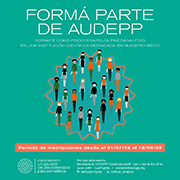TRAINING IN PSYCHOTHERAPY: CHALLENGES, EXPECTATIONS, COMMITMENT
DOI:
https://doi.org/10.53693/ERPPA/3.1.4Keywords:
training, psychotherapy, supervision, supportAbstract
In different contexts, countries and institutions, training in psychotherapy varies greatly. Recent research has shown that it can have negative effects on trainees’ selfesteem and capacity for compassion and sympathy towards others, even though it may provide academic inputs. Taking as a model training of health care personnel, this paper presents a training model based on procedural learning of the capacity to care for others gained through the experience of being cared for during the training experience. This
paper presents a training model which combines academic knowledge with experiential workshops aimed at exploring feelings of fear and incompotence in the face of the start of clinical practice, thus contributing to the construction of a psychoterapeutic self.
Group supervision conducted in a friendly, horizontal style is an essential complement.
Downloads
References
Axial (2022). Eight lessons from Alejandro Zaffaroni (alza Corporation). https://axial.substack.com/p/eight-lessons-from-alejandro-zaffaroni?s=r&utm_campaign=post&utm_medium=web
Bleger, J. (1967). Simbiosis y ambigüedad: estudio psicoanalítico. Paidós.
Carlevaro, P. (1998). El rol de la Universidad y su relación con la sociedad. Cuadernos de Política Universitaria, 1(1), 20-32.
Defey, D. (2021). El diagnóstico y abordaje situacionales en psicoterapia como imperativo ético y técnico. Manuscrito inédito.
Defey, D., Sabah, B. y Stolovich, B. (2010). Vidas difíciles. Maternidad y discapacidad: una mirada desde adentro. Facultad de Medicina (Udelar) y Comunidad Israelita del Uruguay.
Evers, O., Schröder-Pfeifer, P., Möller, H. y Taubner, S. (2021). The competence development of German psychotherapy trainees: A naturalistic, longitudinal and multidimensional outcome study. Psychotherapy Research, 32(4), 539-553. https://doi.org/10.1080/10503307.2021.1950939
Fiorini, H. (1979). Teoría y técnica de psicoterapias. Nueva Visión.
Fiorini, H. (2000). Estructuras y abordajes en psicoterapia psicoanalítica. Nueva Visión.
Garbarino, H. (1980). La formación del psicoterapeuta psicoanalítico [conferencia]. Posgrado en Psicoterapia Psicoanalítica, Universidad Católica del Uruguay, Montevideo.
Morin, E. (2001). Introducción al pensamiento complejo. Gedisa.
Norcross , J. y Goldfried, M. (2005). Handbook of psychotherapy integration. Oxford University Press.
Norcross , J. y Wampold, B. (2011). What works for whom: Tailoring psychotherapy to the person. International Journal of Clinical and Health Psychology, 67(2), 127-32. https://doi.org/0.1002/jclp.20764
Rönnest ad, H. y Orlinsk y, D. (2005). How psychotherapists develop. A study of therapeutic work and professional growth. American Psychological Association.
VelascSCo, R. (2011). Memoria y conocimiento relacional implícito. Temas de Psicoanálisis, 1, 1-18. https://www.temasdepsicoanalisis.org/wp-content/uploads/2010/12/memoria-y-conocimiento-relacional-implicito.pdf










